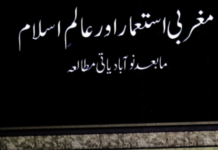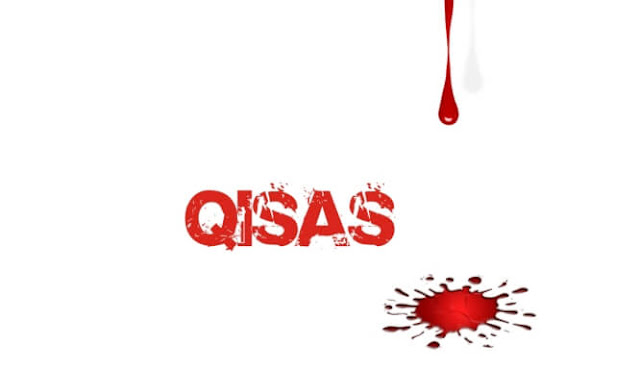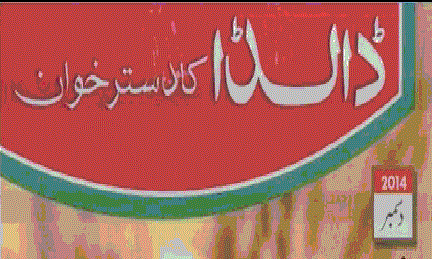Secret Heart Mazhar Kaleem MA and Russian Spy in the American Embassy. It is a new Imran Series story for the readers of Urdu Tube. Secret Heart Mazhar Kaleem MA is a well-known fiction writer in Pakistan. He followed Ibn e
After the breakfast, Imran read the strange news in the headline. This news was about a Spy who was arrested by the police. It is stated, he is the Russian spy in American Embassy at Pakistan. It is a strange mission assigned to Imran and his team. The laboratory was located in Israel. The ending of this mission is almost the strange. Imran copied the talking style of a Doctor. Then he called

Imran received a call from the professor of that the laboratory. He told about the result is Red Flash. It was a dangerous issue for this laboratory. Professor requested to solve the problem. Imran misdirect to the professor to solve the issue. When he implemented upon the directions a blast heard in telephone call. All team of Imran surprised to hear the blast.
Mazhar Kaleem MA was a famous writer of fictions stories. He copied the style of Ibn e Safi. The Imran of Mazhar Kaleem is totally different. Imran of Ibn e Safi was old by stylish and modern. But Imran of Mazhar Kaleem is modern, expert and extraordinary in every field.
The main thing which I feel in Mazhar Kaleem’s novels is the use of automatic weapons. Imran of Ibn e Safi was a common and cultural man. While the Imran by Mazhar Kaleem is
Note: This article was originally published on our related blog. We have merged content from our educational subdomains to provide easier access in one place. The original post is still available at: http://www.books.urdutubes.com/2019/02/secret-heart-by-mazhar-kaleem-russian-spy-in-american-embassy.html
All content is owned and authored by us, and redistribution or reuse is not allowed without permission.
Note: This post is part of our content merger from multiple educational subdomains. To access the original content, visit: books.urdutubes.com for book-related content, PDFs, and downloads, or videos.urdutubes.com for video-related posts. All content is owned and authored by us, and redistribution or reuse is not allowed without permission.




![Khawateen Digest February 2025 [Download PDF] Khawateen Digest – February 2025 Edition: A Must-Read for Every Woman! The February 2025 issue of Khawateen Digest is packed with engaging stories, insightful articles, and practical tips that cater to the modern woman. From inspiring tales to expert beauty and health advice, this edition has it all. Whether you're in the mood for a gripping story or seeking helpful tips for daily life, this digest will keep you hooked. Don't miss out on the latest edition – download the Khawateen Digest February 2025 now and enjoy a well-rounded read that speaks to every woman's interests.](https://www.urdutubes.com/wp-content/uploads/2025/04/Khawateen-Digest-February-2025-Download-PDF-218x150.jpg)
![Khawateen Digest January 2025 [Download PDF] Khawateen Digest January 2025 [Download PDF]](https://www.urdutubes.com/wp-content/uploads/2025/04/Khawateen-Digest-January-2025-Download-PDF-218x150.jpeg)
![Kiran Digest April 2024 [Download PDF] Kiran Digest April 2024 [Download PDF]](https://www.urdutubes.com/wp-content/uploads/2025/04/Screenshot-2025-04-13-113317-218x150.png)
![Kiran Digest March 2024 [Download PDF]](https://www.urdutubes.com/wp-content/uploads/2018/05/KiranDigestMay2018255BDownloadFreePDF255D.jpg)








[…] Secret papers show how Britain helped Israel make the A-bomb in the 1960s, supplying tons of vital chemicals including plutonium and uranium. And it looks as though Harold Wilson and his ministers knew nothing about it. By Meirion Jones Mirage jets swoop from the sky to destroy the Egyptian air force before breakfast; tanks race across the desert to the Suez Canal; Moshe Dayan, the defence minister, poses with eyepatch after the Jerusalem brigade has fought its way into the Old City. These are the heroic images of the Six-Day War and they defined Israeli daring: here were a people who, it seemed, risked everything on a throw of the dice. Years later the world discovered that there was an insurance policy. They had a secret weapon – two, to be precise. In the weeks before Israel took on the Arab world in June 1967, it put together a pair of crude nuclear bombs, just in case things didn’t go as planned. Making them required not only Israeli ingenuity but also plenty of help from abroad. It has been known for some time that the French helped build Israel’s reactor and reprocessing plant at Dimona, but over the past year, our research team at BBC Newsnight has unearthed something no less astonishing and much closer to home – top-secret files which show how Britain helped Israel get the atomic bomb. We can reveal that while Harold Wilson was prime minister the UK supplied Israel with small quantities of plutonium despite a warning from British intelligence that it might “make a material contribution to an Israeli weapons programme”. This, by enabling Israel to study the properties of plutonium before its own supplies came online, could have taken months off the time it needed to make a weapon. Britain also sold Israel a whole range of other exotic chemicals, including uranium-235, beryllium and lithium-6, which are used in atom bombs and even hydrogen bombs. And in Harold Macmillan’s time, we supplied the heavy water that allowed Israel to start up its own plutonium production facility at Dimona – heavy water that British intelligence estimated would enable Israel to make “six nuclear weapons a year”. After we exposed the sale of the heavy water on Newsnight last August, the government assured the International Atomic Energy Agency (IAEA) that all Britain did was sell some heavy water back to Norway. Using the Freedom of Information Act, we have now obtained previously top-secret papers which show not only that Norway was a mere cover for the Israel deal, but that Britain made hundreds of other secret shipments of nuclear materials to Israel in the 1950s and 1960s. Tony Benn became technology minister in 1966, while the plutonium deal was going through. Though the nuclear industry was part of his brief, nobody told him we were exporting atomic energy materials to Israel. “I’m not only surprised,” he says, “I’m shocked.” Neither he nor his predecessor Frank Cousins agreed to the sales, he insists, and though he always suspected civil servants of doing deals behind his back, “it never occurred to me they would authorise something so totally against the policy of the government”. The documentary evidence is backed by eyewitness testimony. Back in August 1960, when covert photographs of a mysterious site at Dimona in Israel arrived at Defence Intelligence Staff (DIS) in Whitehall, a brilliant analyst called Peter Kelly saw immediately that they showed a secret nuclear reactor. Today Kelly, physically frail but mentally acute, lives in retirement on the south coast, and as he leafs through the “UK Eyes Only” reports he wrote about Israel for MI5 and MI6, he smiles. “I was quite perceptive,” he says. Kelly recognised that the Dimona reactor was a French design, and he very soon discovered where the heavy water needed to operate it had come from. When we explain that the government has told the IAEA that Britain thought it was selling the heavy water to Norway he laughs heartily. What really happened was this: Britain had bought the heavy water from Norsk Hydro in Norway for its nuclear weapons programme, but found it was surplus to requirements and decided to sell. An arrangement was indeed made with a Norwegian company, Noratom, but crucially the papers show that Noratom was not the true buyer: the firm agreed to broker a deal with Israel in return for a 2 per cent commission. Israel paid the top price – £1m – to avoid having to give guarantees that the material would not be used to make nuclear weapons, but the papers leave no doubt that Britain knew all along that Israel wanted the heavy water “to produce plutonium”. Kelly discovered that a charade was played out, with British and Israeli delegations sitting in adjacent rooms while Noratom ferried contracts between them to maintain the fiction that Britain had not done the deal with Israel. The transaction was signed off for the Foreign Office by Donald Cape, whose job it was to make sure we didn’t export materials that would help other countries get the atom bomb. He felt it would be “overzealous” to demand safeguards to prevent Israel using the chemical in weapons production. Cape is 82 now, tall, clear-headed and living in Surrey. He told us the deal was done because “nobody suspected the Israelis hoped to manufacture nuclear weapons”, but his own declassified letters from March 1959 suggest otherwise. They show, for example, that the Foreign Office knew Israel had pulled out of a deal to buy uranium from South Africa when Pretoria asked for safeguards to prevent it being used for making nuclear weapons. It also knew the CIA was warning that “the Israelis must be expected to try and establish a nuclear weapons programme”. Just weeks later, however, Britain started shipping heavy water direct to Israel: the first shipment left in June 1959 and the second in June 1960. There was another problem: Americans. There was no US-Israeli alliance in those something no less astonishing and much closer to home – top-secret files which show how Britain helped Israel get the atomic bomb. We can reveal that while Harold Wilson was prime minister the UK supplied Israel with small quantities of plutonium despite a warning from British intelligence that it might “make a material contribution to an Israeli weapons programme”. This, by enabling Israel to study the properties of plutonium before its own supplies came online, could have taken months off the time it needed to make a weapon. Britain also sold Israel a whole range of other exotic chemicals, including uranium-235, beryllium and lithium-6, which are used in atom bombs and even hydrogen bombs. And in Harold Macmillan’s time, we supplied the heavy water that allowed Israel to start up its own plutonium production facility at Dimona – heavy water that British intelligence estimated would enable Israel to make “six nuclear weapons a year”. After we exposed the sale of the heavy water on Newsnight last August, the government assured the International Atomic Energy Agency (IAEA) that all Britain did was sell some heavy water back to Norway. Using the Freedom of Information Act, we have now obtained previously top-secret papers which show not only that Norway was a mere cover for the Israel deal, but that Britain made hundreds of other secret shipments of nuclear materials to Israel in the 1950s and 1960s. Tony Benn became technology minister in 1966, while the plutonium deal was going through. Though the nuclear industry was part of his brief, nobody told him we were exporting atomic energy materials to Israel. “I’m not only surprised,” he says, “I’m shocked.” Neither he nor his predecessor Frank Cousins agreed to the sales, he insists, and though he always suspected civil servants of doing deals behind his back, “it never occurred to me they would authorise something so totally against the policy of the government”. The documentary evidence is backed by eyewitness testimony. Back in August 1960, when covert photographs of a mysterious site at Dimona in Israel arrived at Defence Intelligence Staff (DIS) in Whitehall, a brilliant analyst called Peter Kelly saw immediately that they showed a secret nuclear reactor. Today Kelly, physically frail but mentally acute, lives in retirement on the south coast, and as he leafs through the “UK Eyes Only” reports he wrote about Israel for MI5 and MI6, he smiles. “I was quite perceptive,” he says. Kelly recognised that the Dimona reactor was a French design, and he very soon discovered where the heavy water needed to operate it had come from. When we explain that the government has told the IAEA that Britain thought it was selling the heavy water to Norway he laughs heartily. What really happened was this: Britain had bought the heavy water from Norsk Hydro in Norway for its nuclear weapons programme, but found it was surplus to requirements and decided to sell. An arrangement was indeed made with a Norwegian company, Noratom, but crucially the papers show that Noratom was not the true buyer: the firm agreed to broker a deal with Israel in return for a 2 per cent commission. Israel paid the top price – £1m – to avoid having to give guarantees that the material would not be used to make nuclear weapons, but the papers leave no doubt that Britain knew all along that Israel wanted the heavy water “to produce plutonium”. […]
[…] Farmer in fields told the remedy to get rid of the heart diseases. How to boost your business? Here is a method of Talisman for you. How to glow your skin […]